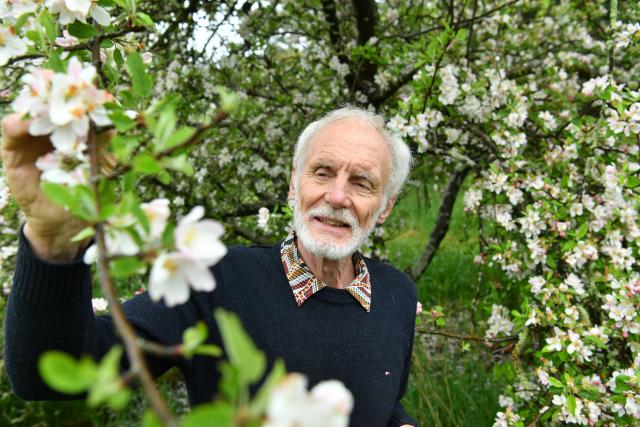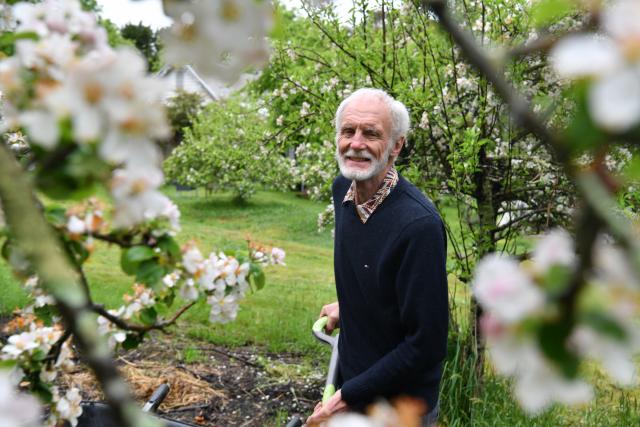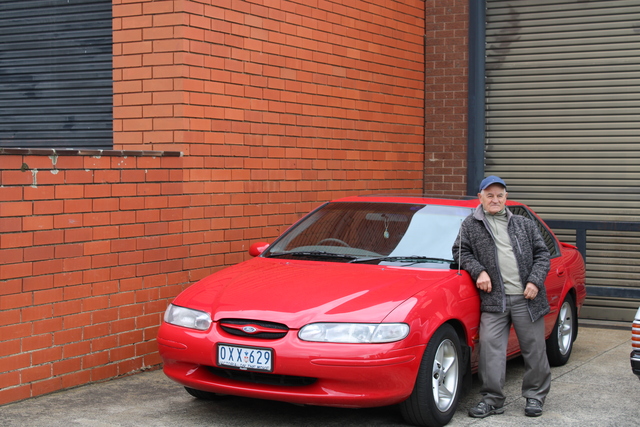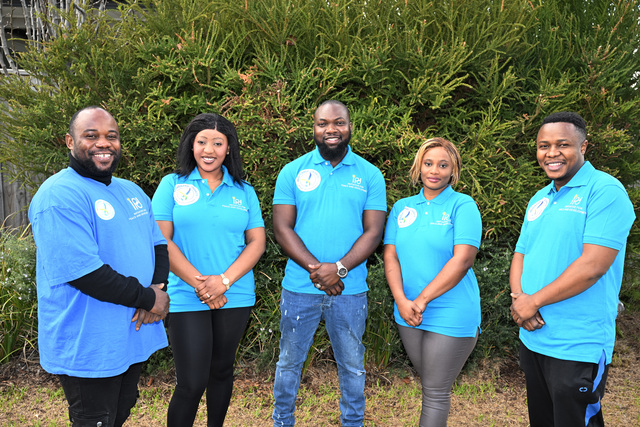[Precede]
Elsie Lange explores climate change, fruit growing and the challenges of the future with long-time organic producer Bruce Hedge, Newham resident and co-founder of the famous CERES Environment Park in Brunswick.
Bruce Hedge has been measuring rainfall in Cobaw for the Australian Bureau of Meteorology for more than three decades and he says October this year was the wettest on record “by far”.
His recording for the bureau is just one of the many hats he’s worn through the years.
From photographer, to gardening radio host and even co-founder of Brunswick’s Centre for Education and Research in Environmental Strategies, known as CERES – he cares deeply about the environment and its future.
On his 10-acre property, Wirreanda, he grows apples – 200 varieties, or 250 trees over the years – it’s there he’s seen the impact of a warming climate creep in.
“I’ve been keeping meticulous records of the first flowering on all of the trees for 40 years,” he says.
“There is no doubt whatsoever that the flowering times of the apple trees are getting earlier.”
While flowering was two weeks later this year – which he puts down to grey and overcast conditions – he says the overall trend has become clear. “The only thing that is absolutely certain about climate change is total uncertainty, we just don’t know what’s going to happen from year to year,” he says.
CSIRO agriculture and food senior research scientist Dr Pat Mitchell says some of the patterns he’d seen from a climate perspective showed there was “no doubt” an upward trend in the temperature record.
“If you break that down into parts of the growing season, for an orchard like an apple crop, we see that late winter or early spring is a time we’re seeing increasing temperatures,” Dr Mitchell says.
“What that will mean for something like apples is that the dormancy period during winter will shorten, you’ll get flowering as a response.
“What that might do is it may affect how other processes flow on from that … it creates a lot of challenges from the fruit perspective, but it also affects the whole logistics of the industry built around that.”
Dr Mitchell says the impact of a warming climate on the wine industry and grape growing highlighted some of the issues fruit producers are facing.
“Well documented observation in wine growth is the harvest has come forward something in the order of about a week per decade … it’s just another example that if the climate warms the season shortens the fruit growing,” he says.
“Then you’ve got an earlier harvest, and that can have an affect on the quality of that fruit.”
Mr Hedge practices permaculture, a sustainable, self-sufficient, world-embraced philosophy of farming and living developed by Australia’s Bill Mollison and David Holmgren.
Permaculture is defined by Mr Holmgren as “a design system”.
“It’s not really a system of gardening or a system of farming … it affects all of those things, but it’s more of a design system for both sustainable land use in the broader sense … and sustainable living,” he told The Food Forest in 2010.
In his day-to-day practice, Mr Hedge sees the weather’s impact up-close on his system of growth – he says weather events are becoming more severe, like the floods last month.
“The weather has become more extreme. We’ve had extreme dry periods, and extreme wet periods,” he says.
“I have just recorded the wettest October ever … by far, breaking the monthly record by at least 25 per cent.”
Dr Mitchell says rainfall variability is a feature in Australia’s climate and always has been, but on top of temperature changes, the cycles of fruit and flowering are shifting.
“The things we used to do are no longer suitable, they talk about [how] now there’s not four seasons, there’s six seasons,” he says.
“What we thought was winter to spring … happens really differently now and there’s a lot of that [anecdotally], but it’s backed up by the observations in the temperature records.
“Of course, the projected changes from our climate models really see that it’s going to continue as we’ve already observed it.”
He says the projections for rainfall aren’t “particularly clear cut”, but the shifts between the wet years and the dry years will continue to intensify.
“That’s consistent with an atmosphere that’s heating, therefore having larger shifts between wet and dry periods… variability will become more variable,” he says.
What Mr Hedge says he wants for the future is for his grandchildren to grow up in a world not devastated by climate change – he says he’s optimistic.
“Regenerative agriculture, renewable energy and electric cars … If we embrace all these new technologies … we’re going to be alright,” he says.
“Gandhi said ‘Be the change you want to see in the world’, and I’d like to see people becoming aware of how to live lighter on the earth, we just have to stop using so much stuff.”








